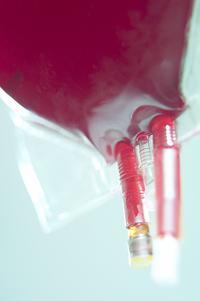Report: German doping investigation of Freiburg doctors ends
Some Telekom/T-Mobile doping cases “verifiable”, but no prosecution to ensue

German prosecutors have closed their investigation of two doctors accused of having helping Team Telekom/T-Mobile riders dope, a German news magazine has reported. There was said to be “no sufficient suspicion of concrete violations of criminal provisions.”
Sinkewitz not alone in blood doping in 2006
Spiegel releases Freiburg investigation details
Doctors Lothar Heinrich and Andreas Schmid were associated with the Freiburg University Clinic and worked with Team Telekom/T-Mobile. They were accused of supplying the riders with illegal doping products including EPO and growth hormones, and of carrying out blood doping.
However, according to the news magazine Spiegel, the prosecutor ended the more than five-year long investigation on July 17 of this year. Many of the charges had passed the statute of limitations, chief prosecutor Christoph Frank said in his 21-page order. In addition, the riders had agreed to the doping and were not injured by it. In some cases exact dates and locations of the doping could not be established.
There was still, though, a “continuing general suspicion” that the doctors supplied the doping products, and specifically provided EPO to Jan Ullrich, Steffen Wesemann, Rolf Aldag, Erik Zabel, Udo Bölts and Jens Heppner. It was also “verifiable” that Andreas Klöden, Matthias Kessler and Patrik Sinkewitz were involved in blood doping in 2006, Spiegel reports the order as saying.
In May 2007, both doctors confessed to having helped riders dope over the years, although neither of them named names. They were suspended by the German team and ultimately fired from the University Clinic.
Following the first disclosures of the doctors' actions, a number of athletes confessed to having used doping products, including Zabel, Aldag and Bölts.
The 2006 blood doping charges stem from the Tour de France that year. In 2007, Sinkewitz tested positive for testosterone, and received a one-year ban for cooperating with investigators, which including disclosures of blood doping by the riders during the 2006 Tour.
The latest race content, interviews, features, reviews and expert buying guides, direct to your inbox!
Klöden was investigated for his involvement in the blood doping scheme, but the case ended in November 2009, when he made a 25,000 Euro payment to charity to settle the charges.
